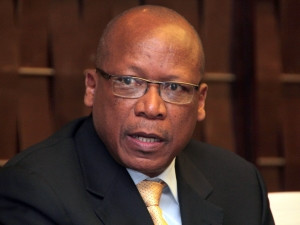
MTN is cautiously optimistic of a turnaround in its South African operations as it starts to add net subscribers, following a first half in which it was again too slow to respond to competition.
Addressing analysts this morning at the company's results presentation, group president and CEO Sifiso Dabengwa noted: "The South African operation remained under pressure and steps were taken to improve its performance." He said minutes of use dropped in SA, and was not offset by gains in Nigeria.
The group, the second-largest local mobile operation, this morning reported its figures for the six months to June and noted its South African operation lost further ground at the top line, with revenue dropping 7% - or 3.4% if currency changes are stripped out - to R19.16 billion.
Overall, revenue gained 10.7% ? or 4.1% on a constant currency basis ? to R72.8 billion. Local interconnect revenue declined 30.4%.
Mobile termination rates dropped from March. MTN and Vodacom now charge each other 44c, while Cell C and Telkom Mobile now charge the two larger players more than double that (44c) to terminate calls on their network. These rates are only in effect until October, after a South Gauteng High Court ruled at the end of March that the Independent Communications Authority of SA's (ICASA's) rate structure was "unlawful and invalid", but suspended the order of invalidity for six months. ICASA has been reviewing the rates.
Slow to react
Dabengwa again commented the group had not been competitive enough in the prepaid segment, a characteristic that has dogged the company for several periods. He said, however, the company started to gain traction again in the second quarter, and has seen an improvement in its local operation.
MTN's effective rate has now dropped to 79c, although this is still higher than Vodacom's 68c a minute. Dabengwa does not anticipate this rate dropping further, arguing that headline tariffs are less important as indicators than other aspects such as maintaining the subscriber base, and adding value-added services. "South Africa did face challenges, but some internal changes were made in respect of our market offerings."
CFO Brett Goschen pointed out that MTN added 400 000 new net subscribers in July, and is seeing minutes of use pick up. He said the group is noticing a turnaround, although there are still headwinds, such as lower termination rates.
MTN says, although it showed resilience in its third-largest market "in the face of significant market and operational challenges" it lost market share, which dropped 2.7 percentage points, to 31.9%.
Its elimination of almost a million active, but non-revenue-generating subscribers, in the first quarter, weighed on its subscriber numbers, which ended the period at 25.3 million. This is after the net gain of 394 000 users in the second quarter failed to offset the drop-off of 825 000 customers in the first three months of the year.
Specific promotions
MTN says second quarter subscriber gains were mostly thanks to "focused and targeted promotions to the prepaid segment". Promotions led to a 33.5% increase in prepaid traffic during the second quarter, but failed to address declining prepaid users, as the base dropped 4.3% to 19.8 million.
Contract users, however, gained 4.6% to 3.5 million. MTN expects a "return to normalised growth in revenue and subscribers over the next six months".
Data revenue, including MTN Business, gained 13.7% to R4.48 billion and contributed 23.4% to total revenue. "This was a satisfactory result despite a decrease of 38.1% in the average price per megabyte given the aggressive price competition," says MTN in a statement.
Increased 3G coverage and competitive data bundles were the main contributors to this growth. The number of data users gained 2.7% to 14.7 million and the operation had 5.3 million active smartphones on its network at the end of June.
During the first six months, MTN the group spent R2 billion, most of which went into improving 3G capacity. It added 220 new 2G sites and 400 co-located 3G sites, growing its 3G population coverage to 83.9%.
Share